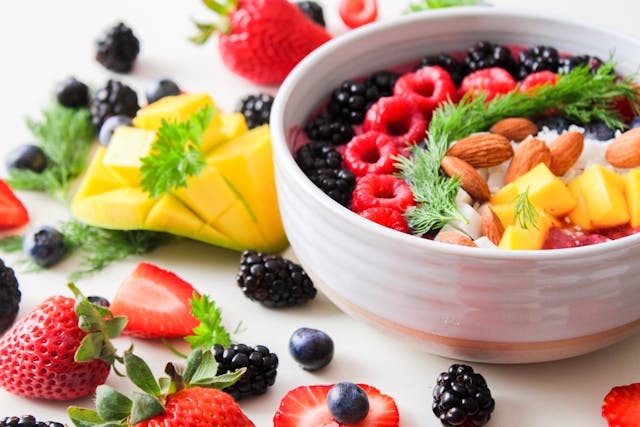Gastroesophageal reflux illness (GERD) is an ongoing condition influencing millions around the world. Consistent heartburn, acid reflux, and other unpleasant symptoms are its hallmarks. While a drug stays a typical treatment choice, dietary changes can assume a pivotal part in overseeing and reducing the side effects of GERD. Learn how your diet affects GERD and how to effectively manage it by changing your diet.
Understanding GERD and Its Dietary Impacts
GERD occurs when stomach acid frequently flows back into the tube connecting your mouth and stomach (oesophagus). This backwash (acid reflux) can irritate the lining of your oesophagus, leading to discomfort and potential complications if untreated. The role of diet in the development and management of GERD is significant because certain foods can exacerbate the symptoms by relaxing the lower oesophagal sphincter (LES), which needs to stay tight to block food from coming back up.
Foods to Avoid
A few food sources are known to set off or demolish GERD side effects. These include:
Foods High in Fat: Fattening foods can make it take longer for the stomach to empty, which could make reflux worse. Choose low-fat alternatives and steer clear of fried food.
Acidic Food Varieties and Drinks: Things like citrus organic products, tomatoes, and carbonated drinks can increment stomach sharpness.
Hot Foods: Spices like pepper and chilli powder can irritate the oesophagus and make symptoms of acid reflux worse.
Mint and chocolate: These can relax the LES, which can make acid reflux more likely.
Alcohol and caffeine: Both can loosen up the LES and animate corrosive creation, expanding GERD side effects.
Foods That Help Manage GERD
While some foods exacerbate GERD, others can help manage symptoms by strengthening the digestive system and reducing acid reflux:
Foods High in Fiber: Fiber-rich food sources like cereal, entire grains, and vegetables can assist with lessening side effects by engrossing stomach corrosive and decreasing the probability of reflux.
Soluble Food varieties: Cauliflower, bananas, and other foods with a higher pH, like melons and bananas, can counteract stomach acidity.
Dairy Products: Hydrating decisions like cucumbers, lettuce, and stock-based soups can help weaken and debilitate stomach corrosive.
Ginger: Ginger can help alleviate symptoms of nausea and acid reflux as well as reduce inflammation in the gastrointestinal tract.
Protein Powders: Integrating lean meats, like chicken, turkey, and fish, into your eating regimen can assist with diminishing side effects contrasted with heavier red meats.
Lifestyle and Dietary Tips
Alongside knowing what to eat and what to avoid, certain eating habits can help manage GERD:
Eat More Modest, More Continuous Dinners: Enormous dinners can come down on the LES, expanding the gamble of reflux.
Abstain from Late Eating: Eating near sleep time can set off evening reflux. Make it a goal to eat your final meal at least three hours before going to bed.
Keep a Sound Weight: The stomach can be pushed up by excess weight, which can cause acid to reflux into the oesophagus.
Move the Headboard of Your Bed Up: By allowing gravity to work in your favour, raising the head of your bed can help alleviate symptoms during the night.
Interview with a Subject matter expert
While these dietary rules can assist with overseeing GERD, talking with a medical care supplier or dietitian is urgent to make a customized eating plan. They can give customized counsel that considers other medical issues and dietary requirements, guaranteeing extensive consideration and the board of your side effects.
Coordinating Reflux Connoisseur into Your Eating Routine
Reflux Connoisseur’s items offer an answer for those searching for normal cures. The mint-free vanilla caramel rescue is one of their all-natural alginate-based products that can naturally prevent reflux. Your ability to effectively manage GERD symptoms can be effectively improved by incorporating these products into your dietary management plan.
In conclusion, treating GERD frequently necessitates a comprehensive strategy that may include natural supplements like those from Reflux Gourmet as well as modifications to one’s diet and way of life. By grasping the effect of various food varieties on GERD and changing your eating routine as needed, you can altogether decrease side effects and work on your personal satisfaction. To investigate their item range and become familiar with how they can squeeze into your dietary administration plan for GERD, visit refluxgourmet.com.




